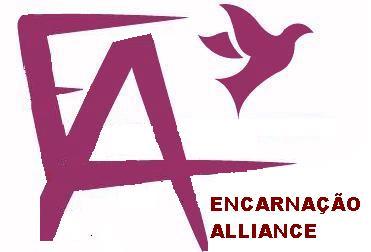Roots of Evangelical Spirituality |
Evangelicalism was birthed in revivals. These include the Franciscans and Waldensians in the 1200's in Italy, down through the Pietists of Germany, to the Wesleyan Revival to the second Great Awakening in England and the US in the mid 1800's, to the Global Revival of 1904 that began simultaneously in many nations. The revival emphasis on the Holy Spirit marked the advance of Methodism across the United States, was sustsined in the Free Methodists, from whom the queries as to "What is perfectionism?" and "What is the sign of the Holy Spirit?" lead to the outbreak in Asuza Street in 1904 (one of many outbreaks that year around the world). It would birth the unusual doctrine that the evidence of the coming of the Holy Spirit is speaking in tongues, which then mutliplied in Pentecostalism globally. Evangelicalism has been expanded globally, through people movements across the nations, revivals that break out and many thousands turn to Christ. Evangelicals in contrast with Pentecostals identified other evidences than speaking in tongues as the sign of empowerment by the Holy Spirit, but evangelicalism has continued to combine both evangelical and Pentecostal denominations. The World Evangelical Alliance is the representative voice for this movement globally. DefinitionsI define revivalas the experience of the person of the Holy Spirit falling on groups resulting in a dramatic transformation of their Christianity, caused by or resulting in repentance, accompanied by boldness in evangelism, power, love and unity. A revival movement occurs when the Holy Spirit falls on multiple groups, as those initially touched by the Spirit, go in power and take his presence into related social groups. Transformation, in the text on Social Transformation of the Wheaton 83 Consultation is: The change from the condition of human existence contrary to God's purposes to one in which people are able to enjoy fullness of life in harmony with God (World Evangelical Fellowship, 1983: section 11). I use transforming revival for a consummated revival movement fully engaged in transforming the core - and the nooks and crannies - of society and culture. It may cause a cultural revitalisation, beginning with engagement in the public domain. Then as major paradigm shifts occur within a generation or so, this progressively transforms the values and vision of major cultural sectors with the values of the Kingdom. The public domain is that space of conversation about vision, values and structure between diverse ethnicities, interest groups and corporate structures in sectors of the city. Neuhaus has analysed this in The Naked Public Square for America (1984). Mouw, has sought to do so for Evangelicals (1973; 1976). Evangelicalism includes traditionally orthodox Protestants from many denominations and includes Pentecostals, charismatics, conservatives and fundamentalists. The term was popularised during the Great Awakening in Britain and the US, dramatic periods of revival resulting in conversion of hundreds of thousands. Three global networks currently link these: The World Evangelical Fellowship, the Lausanne Movement and, during the 1990's the AD2000 movement (now morphed into the Transformation Movement). Central to Evangelicalism is belief in the atoning work of Christ for salvation, the necessary proclamation of the gospel and the authority of the written Word of God "in faith and practice". The term came to represent a historic conflict with "liberal" Protestants who are defined as those who would not necessarily centralise verbal evangelism or historic Christian commitments to the authority of the canon as the Word of God. The Pentecostal movements grew in multiple indigenous movements parallel to Evangelicalism, involving those who by their own definition, have passed through two determining experiences in their relationship to the God of the Bible. The first experience is conversion based on repentance and receipt of forgiveness through the atoning work of Christ on the cross. The second is a concomitant or subsequent experience of the "baptism of the Spirit", which may signify receipt of the Holy Spirit, extra empowering, anointing or a host of other existential experiences. Global researcher, David Barrett defines Christians who are members of Pentecostal denominations whose major characteristics are "rediscovery of and a new experience of the supernatural with a powerful and energising ministry of the Holy Spirit in the realm of the miraculous while mostly orthodox in their commitment to the historic creeds and the authority of the Scriptures." Evangelicals would prefer to be simply known as those who follow the beliefs of the first Christians. Orthodoxy is that sustained tradition that has steadily centered the consenting church in the primordially received interpretation of the apostolic witness (Oden, 1995:398). Historian Bebbington (1989:3) speaks of conversionism, activism, Biblicism, and crucicentrism as the four priorities of evangelicalism. New Zealand defi nitions may befound in Ahdar (2000:40). Liberal Protestant is utilised in this study not from within the self-definition of those at the forefront of Protestant liberalism, but as "the other" for evangelicals. Those who are not evangelicals because they do not accept that all written scripture is inspired, or essentially accurate, and do not centralise evangelism etc. At times in this study, Pentecostals are subsumed with fundamentalists and Evangelicals under the generic word, "Evangelical". Generally, Pentecostals identify these experiences as the release of spiritual gifts and in particular, the gift of speaking in tongues (glossolalia). In practice, only half of Pentecostals actually speak in tongues. The specificity of these doctrines results in the establishing of independent Pentecostal churches although these rapidly form into some form of denominational structures. In comparison, charismatics tend to have had similar experiences of the Holy Spirit but to have chosen to remain within their older denominational structures,forming organised renewal groups. As a result, their interpretations of cause and effect tend to be diff erent. Catholics, Anglicans and Lutherans, for example, donot necessarily see the need for a "conversion" experience prior to a "baptism of the Spirit" experience, but rather view the baptism as an affirmation of their being part of the faithful, born into the church and confirmed into their faith. Many charismatics do not see "speaking in tongues" as the necessary sign of the "baptism of the Spirit",recognizing that the Scriptures teach of multiple giftings for individuals. The "baptism of the Spirit" as a sign of conversion is not highly differentiatedfrom the "baptism of the Spirit" as a sign of spiritual power and anointing. Evangelicals also include fundamentalists, who tend to be more literal in their understanding of the genesis and use of the Scriptures, and strongly emphasizeend-time scenarios. They reject many charismatic and Pentecostal experiences ofthe Holy Spirit. (However, many Pentecostals are fundamentalistic in their view of the Scriptures and attitude to truth). Important within this stream is the century old teaching of dispensationalism which divides history into seven dispensations,each possessing different God-human-state-creation relationships. Significant forthis study is their rejection of the "sign gifts". Many (following Calvin) believe these ceased with the early church." Thus, they reject renewal, revival and associated phenomena, while working in uneasy alliance with Evangelicals, Pentecostals and charismatics. Smidt et al. indicate, from a US study, though with reasonably small sample, that 55% of White Pentecostals and 33% of Black Pentecostals speak in tongues, while 74% of non-denominational charismatics speak in tongues (1999: 116). (excerpted from Grigg, Viv, The Spirit of Christ and the Postmodern City (p11-13)).
|
|

